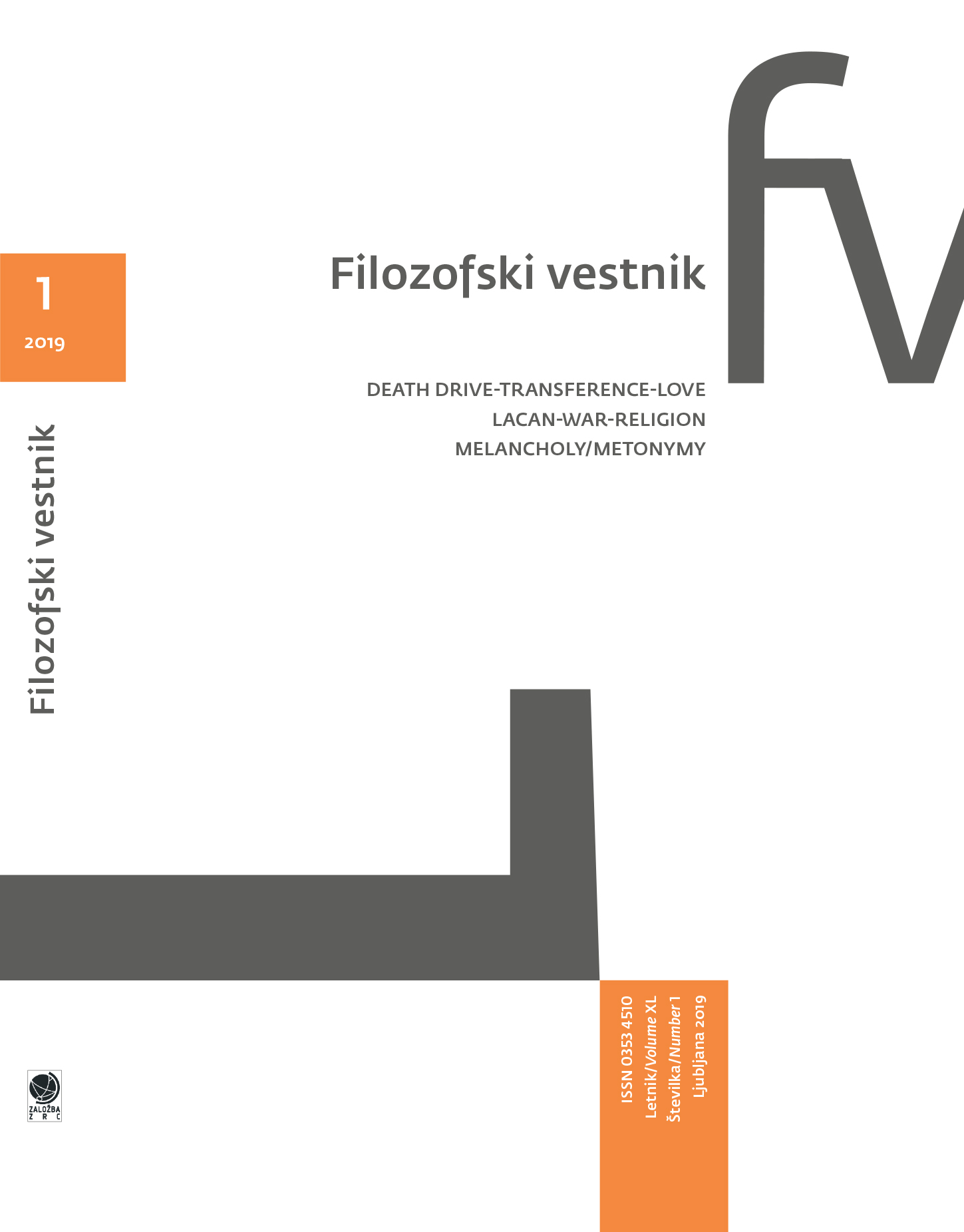Predelava krščanstva: Lacan in ateizem
Ključne besede:
Freud, Lacan, psihoanaliza, religija, krščanstvo, ateizemPovzetek
Medtem ko je Freudov odnos do religiozne vsebine nedvoumno antagonističen, pa se nekaterim zdi, da ima Lacanovo razmerje do religije nasploh in do krščanstva posebej drugačen, bolj ambivalenten značaj. Ta navidezna ambivalenca je vodila do branj, v skladu s katerimi je Lacan bodisi iz (anti-)filozofskih temeljev izhajajoč načelen agnostik, bodisi je celo posebej subtilen (krščanski) teološki mislec. Avtor se v članku zoperstavi obema navedenima tipoma branj, in sicer tako, da izčrpno razvije Lacanova ateistična priporočila. Na ta način poskuša, prvič, pojasniti specifično lacanovsko pojmovanje bistvenih potez resničnega ateizma, ter, drugič, razločiti ateizem à la Lacan od drugih različic nereligioznosti. Nadalje, avtorja Lacanovo pozno poučevanje zanima z vidika vprašanj verovanja in neverovanja, ki nas odvračajo od ključnih točk, ki jih Lacan primarno artikulira v tistem obdobju: je ateizem nepogrešljiv vidik analitičnega izkustva? Lahko analiza proizvede subjekte, ki so popolnoma oropani vseh sledi teistične zaveze? Je mogoče in/ali zaželeno, da osebe v celoti opustijo vse, kar je povezano z religioznostjo? Kakšne bi lahko bile posledice take opustitve za libidinalna, želeča življenja subjektov? Če so določene teistične razsežnosti neizogibni horizonti govoreče subjektivnosti, ali obstaja kakšen obet za invencijo, morda s pomočjo psihoanalize, zgodovinsko neprecedenčnih oblik tistega, kar je skozi zgodovino do sedaj pokrivala religija?
Prenosi
Prenosi
Objavljeno
Kako citirati
Številka
Rubrike
Licenca
Avtorji jamčijo, da je delo njihova avtorska stvaritev, da v njem niso kršene avtorske pravice tretjih oseb ali kake druge pravice. V primeru zahtevkov tretjih oseb se avtorji zavezujejo, da bodo varovali interese založnika ter da bodo povrnili morebitno škodo.
Podrobneje v rubriki: Prispevki





